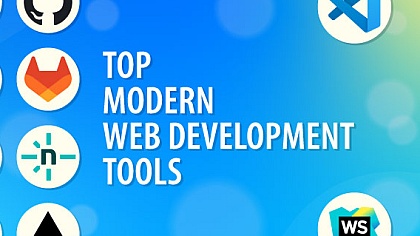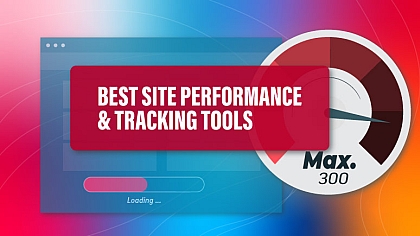
How To Become A Web Developer: Everything You Need To Know
If you are interested in technology and enjoy creating websites and web applications, becoming a web developer in a high-tech city like London or Dubai can be a rewarding career choice.
Whether you are starting from scratch or looking to enhance your existing skills, this article will provide valuable insights and guidance to help you succeed in web development. So, stick with us and read it till the end to know key things!
Definition And Scope Of Web Development
Web development involves the creation and maintenance of websites and web applications. It encompasses a range of tasks, including designing user interfaces, writing code, and ensuring the functionality and responsiveness of websites across different devices.
As a web developer, you will use programming languages such as HTML, CSS, and JavaScript to build websites that meet the needs of clients or businesses. The scope of this field is vast because websites are integral to almost every industry and organisation today. Being one of the best web developers, you can work on diverse projects and collaborate with various stakeholders.
Types of Web Development:
The following are the common types of website development.
Front-End Development:
Front-end development involves creating the visual elements of a website that users interact with. It includes designing the layout, selecting colour schemes, and implementing user-friendly interfaces. To become a front-end developer, you should have a firm grasp of HTML, CSS, and JavaScript.
Additionally, knowledge of front-end frameworks like React or Angular can be beneficial. Front-end developers work closely with designers to confirm that the website's appearance matches the intended design and user experience.
Back-End Development:
Back-end development focuses on the behind-the-scenes functionality of a website. Therefore, back-end developers are responsible for building and maintaining the server-side logic and databases that enable websites to store and retrieve data.
Proficiency in programming languages like Python, Ruby, PHP, or Java is essential for back-end development. Familiarity with frameworks such as Django or Ruby on Rails can also be advantageous. Back-end developers collaborate with front-end developers for smooth data exchange between the server and the user interface.
Full-Stack Development:
Full-stack development involves working on a website's front-end and back-end aspects. Hence, a full-stack web developer has a comprehensive understanding of both client-side and server-side technologies.
They possess a diverse skill set and can independently develop a complete web application from start to finish. To become a full-stack developer, you should gain expertise in both front-end and back-end technologies. It can include learning multiple programming languages, mastering various frameworks, and acquiring knowledge of database management systems.
Qualities Of A Good Web Developer
Becoming a web developer and a web designer requires specific characteristics to help you excel in this field. By possessing these qualities, you can enhance your chances of becoming an expert.
Here are some key characteristics you should aim to develop:
Attention to Detail:
As a web developer, paying attention to detail is crucial. You should be meticulous in your work, confirming that every line of code is accurate and error-free. As a slight mistake can lead to significant issues, precision is vital.
Problem-Solving Skills:
Website development often involves encountering complex problems that require creative solutions. Being able to think critically and troubleshoot effectively is necessary. You should embrace challenges and approach them with a problem-solving mindset.
Continuous Learning:
The field of web development is constantly evolving with new technologies and frameworks emerging regularly. To stay competitive, you should have a strong desire for continuous learning. Stay updated with the latest trends and adapt to new technologies.
Collaboration:
Website development projects often involve working with teams comprising web designers, clients, and other developers. Being a good team player and possessing practical communication skills will enable you to collaborate efficiently and contribute to the project's success.
Time Management:
Meeting deadlines and delivering projects on time is critical in this fast-paced world. Good time management skills will help you stay organised, prioritise tasks, and guarantee the timely completion of projects.
Skills You Need to Become a Web Developer in 2024
To become one of the top successful web developers, you must acquire specific skills that align with industry demands and trends. Here are some essential skills you should focus on developing:
Programming Languages:
Proficiency in programming languages is fundamental for web development. You should have a strong command over languages such as HTML, CSS, and JavaScript. Additionally, knowledge of back-end languages like Python, Ruby, or PHP can enhance your capabilities.
Responsive Design:
With the increasing usage of mobile devices, having expertise in responsive web design is mandatory. You should be able to create websites that adapt seamlessly to different screen sizes and provide an optimal user experience across devices.
Front-End Development:
Front-end development focuses on a website's visual and interactive aspects. You should familiarise yourself with popular front-end frameworks like React, Angular, or Vue.js. Understanding the principles of user interface (UI) and user experience (UX) design is also valuable.
Back-End Development:
Back-end development involves server-side programming, database management, and configuration. Knowledge of frameworks like Django, Node.js, or Ruby on Rails can enhance your back-end development skills.
Database Management:
Understanding how to design and manage databases is important for web development. Familiarise yourself with popular database systems like MySQL, MongoDB, or PostgreSQL. Learn how to create efficient database structures and perform queries to retrieve and manipulate data.
Version Control:
Working with a team requires effective version control to track changes and collaborate seamlessly. You should learn to use tools like Git and platforms like GitHub to manage code versions and facilitate teamwork.
Security Awareness:
As a web developer, you should prioritise website security. Stay updated with common security vulnerabilities and learn to implement secure coding practices to protect websites and user data.
Testing and Debugging:
Thoroughly testing and debugging your code is required for delivering high-quality websites. Learn how to use testing frameworks and debugging tools to identify and fix errors efficiently.
Continuous Integration and Deployment:
Understanding the concepts of continuous integration and deployment can streamline web development workflow. Learn to use tools like Jenkins or Travis CI to automate the build, testing, and deployment processes.
Becoming a web developer in 2024 offers numerous personal and professional growth opportunities. By focusing on either front-end, back-end, or full-stack development, you can specialise in a specific area or gain a versatile skill set.
Remember, the key to success lies in continuous learning, staying updated with emerging technologies, and building a solid portfolio to showcase your abilities. With dedication and practice, you can embark on an exciting career as a web developer and web designer and contribute to the ever-evolving digital landscape.














